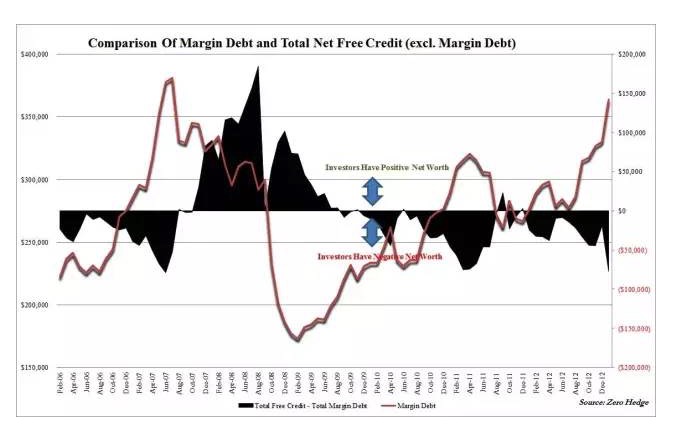Quantitative trading "reverse investment from the mean to the return"
Author: Inventors quantify - small dreams, Created: 2017-02-06 10:11:48, Updated:Quantitative trading "reverse investment from the mean to the return"
- ### Returns the mean The law of parity regression is an important law in finance, which refers to the tendency for the price of an asset to return to a central point with a higher probability regardless of whether the price is above or below the center of value. Although derived from Western financial theory, parity regression is essentially consistent with the axiom of necessity in traditional Chinese philosophy.
战国时期《吕氏春秋.博志》中有“全则必缺,极则必反,盈则必亏”的阐述,意即事物发展到极端则会向相反方向转化,这说的其实就是均值回归的现象。
The phenomenon of parity regression was first proposed by Richard Seller, a professor of behavioral finance at the University of Chicago, and Warner DePont, a professor at the University of Wisconsin. In a 1985 paper titled Is the Stock Market Reacting to Over-Rising, Seller and DePont presented their findings: that in a three- to five-year cycle, when previously underperforming stocks begin to recover from their difficulties, while previously winning stocks begin to reverse downward, this trend is reflected not only in the stock price but also in the company's profits.
The return on equity is common in financial markets, where companies experience ups and downs, and the stock market repeatedly fluctuates between highs and lows. However, even in high-profile financial markets, there is still no consensus on the inducement of a return on equity.
When Graham was asked at a congressional hearing in 1955 what was driving the return of value, he replied: "Well, it's a mystery in our industry, and I don't know the answer any more than anyone else, but experience tells me that there will always be one reason or another for the market to recognize true value".

Michael Porter's theory of competition provides a plausible explanation for the return on equity of companies and industries: new entrants compete to reduce profits when the industry is profitable, and exits create conditions for the industry to return to profitability when the industry is unprofitable. From this point of view, most companies are unlikely to sustain high profitability unless they have some special competitive advantage, and the few companies that can withstand the return on equity are the ones that Buffett described as the "river cities of excellence".
While the law of average returns is widely accepted, it is often overlooked or forgotten by investors. According to the law of average returns, if a company performs well in terms of profits and stock prices for several years in a row, this should cause investors to be wary; on the contrary, investors should pay particular attention to a company that performs poorly in terms of profits and stock prices for several years in a row. In fact, this is exactly the strategy adopted by inverse investors based on value studies. However, in the real market, most investors do not agree.
Celler and DePont's study of data from 1926-1982 on the U.S. stock market found that companies that performed poorly in the past three years outperformed those that performed well in the past three years in each of the following three years. The hedge fund Eyquem, which expanded the study to include a number of markets such as the U.S. and France from 1980 to 2013, also reached a broad consensus. The widespread effectiveness of this inverse investment strategy based on the law of average return is precisely why most investors still do not identify or adopt this investment strategy.
The regression of equity values is also common in China's long history of stock markets, in which many industries or companies are classic examples of returning to normal after high performance and innovation, and more are memorable memories of the rational return of low valuation after the hot topic concept. Interestingly, the growth story is now being re-enacted, and the market is still ignored or even forgotten for the inevitable regression of equity values or objects. From this point of view, reverse investing in the Chinese stock market is also a minority strategy, and therefore will be more valuable.
Looking back at the development of the domestic stock market over the years, the ups and downs of the market, the accumulation of wealth, and the ultimate survival of the winners are mostly those reverse investors based on deep value research analysis, rather than those who follow the market trend. Of course, it is not easy to determine the equity value and when to return, and it is difficult to practice reverse investing based on deep value research. In addition to independent thinking, broad knowledge and rich experience, it also requires the courage and ability to withstand pressure.
Quantification and hedging
- High-frequency strategy: exchange of applications for cabbage harvesters
- Leaving school for a low level of hard work is a trap
- Talk about network trading law
- 2.10.2 Variable values in the API documentation
- Your biggest enemy is inertial thinking.
- Foolish trading: the power of rules
- 2.7.1 Windows 32-bit system Python 2.7 environment Install the talib index library
- Not support market order error
- Inventors describe the mechanism of quantitative analogue level retesting
- The K-Line is not compatible with mainstream channels.
- I've been reading a lot about equity, counter-equity, the profit formula, the gambler's loss theorem (very inspiring).
- The Deutsche Bank study notes several common mistakes in the quantification strategy
- Bitcoin contracts for okcoin: the dollar-renminbi exchange rate problem
- The more complex the method, the more it deviates from the essence of the transaction.
- Quantified trading strategies for the CCI indicator
- About data storage
- Summary of fees related to digital currency exchanges ((updated on 02/13/2017))
- He is the key step to open systematization and short line high frequency trading.
- Ask for help: How to get the opening and closing prices of a k-line
- Synthesis of 4-hour K-string function ((First throw the cube, later give the code for synthesis of arbitrary cycle)